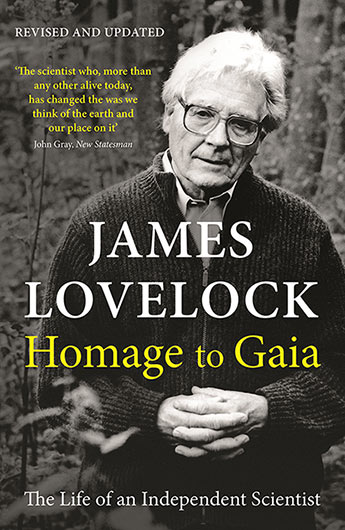Introduction
Homage to Gaia is James Lovelock’s autobiographical account, detailing his life and the development of his groundbreaking scientific theories. This is my first book review, and my aim is not to critique but to share observations and insights drawn from Lovelock’s experiences.
I was intrigued by Lovelock as an independent scientist and found his life story relatable on several levels. Here are some of the new things I learned and random facts I found interesting from the book.
Key Learnings and Observations
Conscientious Objectors: I discovered that individuals who refuse to kill in war are known as conscientious objectors.
Electron Capture Detector (ECD): Lovelock invented the ECD, which remains the most sensitive, portable, and inexpensive analytical device for gas chromatography.
Science in the 1950s: I learned that being a scientist in the 1950s was a well-respected and well-paying profession.
Scientists as Inventors: Due to a lack of laboratory equipment, many scientists in the 1950s were also inventors.
Scientific Funding Philosophy: Lovelock believed in the value of low-cost scientific projects, citing significant advancements made by Newton, Darwin, and Einstein, who achieved groundbreaking discoveries with minimal resources.
Dyslexia: James suffered from dyslexia but used computers to help him develop his theories.
Chemistry Insights:
- Acids increase proton abundance when dissolved in water.
- Substances that capture electrons are often linked to carcinogenesis.
- Chlorine in the stratosphere can catalytically deplete the ozone layer.
Oceanography:
- Organisms struggle to survive beyond 0.8 molar in the ocean.
- Oceans cover 70% of the Earth’s surface.
Gaia Theory:
- Lovelock drew inspiration from James Watt’s self-regulating devices, like the steam-engine governor.
- One of his most important papers, DaisyWorld, formulated a mathematical model to explain Gaia.
Notable Interactions:
- Margaret Thatcher, who had a bachelor’s degree in Chemistry, read Gaia and invited Lovelock to Downing Street for further discussion.
- Lovelock once challenged Mother Teresa’s views by emphasizing the need to respect and care for the Earth, suggesting Gaia would take care of humanity if necessary.
Personal Reflection
Overall, I was deeply impressed by James Lovelock’s passion, drive, and resilience. His unwavering belief in Gaia, coupled with his curiosity and integrity, stood out to me. He displayed nobility in caring for his first wife throughout her illness and remained unassuming despite his accomplishments. Lovelock received much-deserved recognition in his 70s, a testament to the potential for life’s surprises at any age.
Reading this book was enjoyable due to Lovelock’s relatable outlook on life. However, I found some sections challenging due to the numerous names and technical scientific explanations outside my expertise.
Memorable Quote
“Now the Earth is not the phenotype of any species of organism, but the coupling between all the individuals of the planet and their material environment results in a homeostasis similar to that of the nest. We hoped that these thoughts would stimulate discussion on the concept of biological self-regulation at all levels, from the individual organism, the nest, and the ecosystem, to Gaia.”
Conclusion
Homage to Gaia offers a profound glimpse into the life of a pioneering scientist whose theories continue to influence our understanding of Earth’s systems. Lovelock’s journey is a testament to the power of perseverance, curiosity, and integrity in the face of scientific and personal challenges.
I highly recommend this book to those interested in environmental science, the history of scientific discovery, or anyone looking for an inspiring life story.


Leave a Reply
You must be logged in to post a comment.